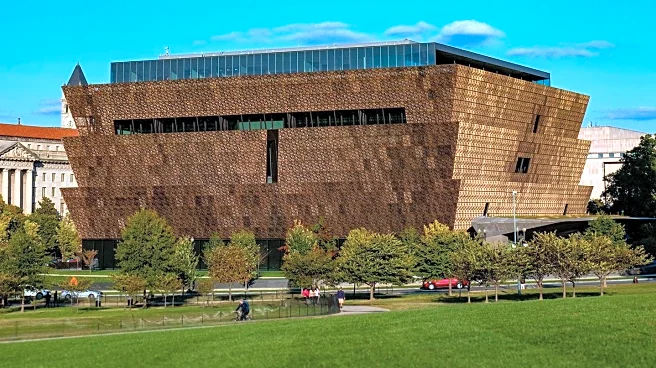What's Happening?
The American Revolution, traditionally viewed as a struggle for independence, is being reconsidered through the lens of insurgency. This perspective highlights the organized efforts of the colonists to
challenge British political control using subversion and violence. The Sons of Liberty and the Continental Congress played pivotal roles in organizing resistance, leading to the declaration of independence. The colonists employed tactics similar to modern insurgencies, such as propaganda and guerrilla warfare, to achieve their political objectives. This reevaluation prompts questions about the nature of insurgency and the historical narrative surrounding the American Revolution.
Why It's Important?
Reframing the American Revolution as an insurgency offers a nuanced understanding of the conflict and its participants. It challenges the conventional narrative that often portrays insurgents negatively, especially in contemporary contexts. This perspective can influence how insurgencies are perceived in current geopolitical situations, potentially affecting military strategies and public opinion. Recognizing the insurgent nature of the Revolution may also impact educational approaches, encouraging a more complex view of historical events and their implications for modern governance and resistance movements.
What's Next?
This reconsideration of the American Revolution could lead to broader discussions about the definitions and perceptions of insurgency. Historians and educators may explore the implications of this perspective, potentially revising curricula to include insurgent strategies and their effectiveness. Military and political leaders might also reassess current counterinsurgency tactics, drawing parallels with historical events to inform future strategies. Public discourse may evolve to include a more balanced view of insurgencies, recognizing their role in shaping political landscapes.
Beyond the Headlines
The ethical and cultural dimensions of labeling the American Revolution as an insurgency are significant. It raises questions about the morality of insurgent actions and the legitimacy of revolutionary movements. This perspective may influence how societies view resistance and rebellion, potentially affecting international relations and domestic policies. The long-term impact could include a shift in how historical narratives are constructed, emphasizing the complexity of political struggles and the diverse motivations behind them.









